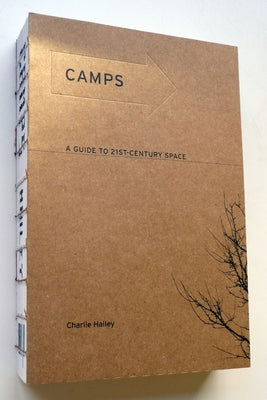Before you leave...
Take 20% off your first order
20% off
Enter the code below at checkout to get 20% off your first order
Discover summer reading lists for all ages & interests!
Find Your Next Read

What is a camp? In August 2005, television news showed viewers an estimated 20,000 Katrina evacuees camped out in the Superdome, Cindy Sheehan protesting the Iraq War on President Bush's doorstep in "Camp Casey," Texas, and Israeli and Palestinian young people at the Seeds of Peace Camp in Maine discussing the evacuation of settlement camps in the Gaza Strip. Meanwhile, off camera, summer campers all over America packed up their gear, preparing to depart Scout camps, computer camps, and sports camps, and millions of recreational vehicles owners were on the road, permanent itinerant campers. In Camps, Charlie Hailey examines the space and idea of camp as a defining dimension of 21st-century life.
The ubiquity and diversity of camps calls for a guidebook. This is what Hailey offers, but it is no ordinary one. Not only does he establish a typology of camps, but he also embeds within his narrative a key to camp ideology. Thus we see how camp spaces are informed by politics and transform the ways we think about and make built environments. Hailey describes camps of diverse regions, purposes, and forms, and navigates the inherent paradoxes of zones that are neither temporary nor permanent: camps of choice, including summer camps, protest camps, drift camps (research stations on Arctic ice floes), and LTVA (Long-Term Visitor Area) Camps; strategic camps regulated by power--boot camps, GTMO (the detention camp at Guant疣amo Bay), immigrant camps, and others;--and transient spaces of relief and assistance, among them refugee camps, FEMA City, work camps, and Gypsy camps. More than 150 diagrams, sketches, building and site plans, photographs, political cartoons, video game screenshots, aerial and satellite images, and maps illustrate camp space in unprecedented complexity and variety.
Today camps are at the center of emerging questions of identity, residency, safety, and mobility. Camp spaces register the struggles, emergencies, and possibilities of global existence as no other space does.
Charlie Hailey is Assistant Professor in the University of Florida's School of Architecture. He is the author of Campsite: Architectures of Duration and Place.
Thanks for subscribing!
This email has been registered!
Take 20% off your first order
Enter the code below at checkout to get 20% off your first order